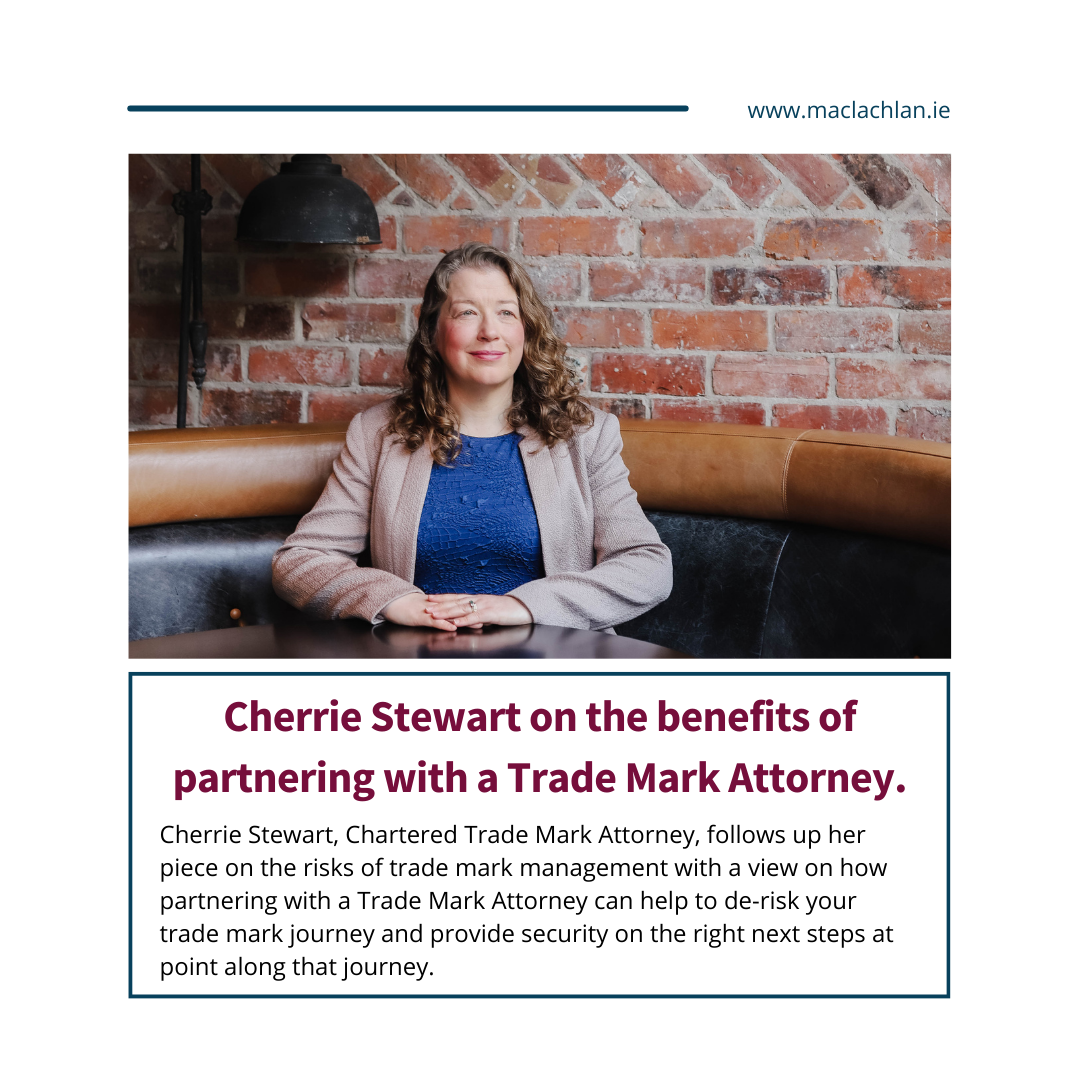In part one of this series, Cherrie Stewart, Director and Chartered Trade Mark Attorney, looked at some of the risks inherent in trade marks and their management, including cautionary real life tales of trade marks gone astray. There are some ways to mitigate these risks and partnering with a trade mark attorney is one of them.
A registered trade mark attorney, with their knowledge of trade mark law and practice and their experience, can guide you through the complexities, providing you with relevant information and advice to allow you to be secure in your decisions when looking to adopt this valuable commodity.
Two types of objections can be raised against a trade mark application: Absolute Ground objections and Relative Ground objections.
- Absolute Ground objections relate to the mark itself, e.g., is it non-distinctive, descriptive, laudatory, deceptive, etc? The administrating trade mark authorities raise these objections.
- Relative Ground objections relate to earlier rights and can be used by third parties as grounds to oppose a trade mark application. In some countries, including Ireland, the Trade Mark Authorities raise Relative Grounds of their own volition.
A registered trade mark attorney can conduct a clearance search to find earlier rights that the use of your trade mark may infringe upon, and which may prevent registration of your trade mark in any given country. They can help assess the risk and steer you away from problems before they arise.
A registered trade mark attorney will also consider whether your trade mark would fall foul of any of the Absolute Ground objections and provide advice concerning what form of the mark should be applied for, e.g. the name as a word-only mark, the name and logo in combination, etc.
Then, they will lead you through the process of applying for a trade mark, including drawing up a custom specification of goods and services. All goods and services are divided into 45 classes, and it is necessary to list which goods and services you wish to cover and which classes they fall into. That seems simple enough, yes?
However, you want to protect your trade mark with respect to headgear, so you cover headgear in Class 25, but your headgear is used in sports to prevent accidents or injuries. Oops, you’ve filed in the wrong class; headgear for preventing accident or injury falls into Class 09. You want to protect your trade mark in connection with cases for laptops and ‘phones, so you cover bags in Class 18. Oops, bags adapted for use with a particular item fall into the same class as that item; therefore, a laptop or ‘phone case falls into Class 09.
It is essential to ensure that your application covers the correct goods and services at the very start since once it is filed, it is not possible to add to or widen its scope.
Furthermore, a registered trade mark attorney will be listed as your representative and as your address for service. This means all official correspondence will be sent to them, allowing them to provide any guidance required immediately.
Engaging a registered trade mark attorney means you have the expert guidance and advice needed to navigate these hazards to achieve your goal of obtaining a registered trade mark, a tool which will aid you in preventing others from taking advantage of the hard work, investment and time you have put into promoting your brand.
If you want to protect your trade marks, why not contact us for a free initial 30-minute consultation? You will be in safe hands with our experienced and knowledgeable registered trade mark attorneys, who would be delighted to travel with you on your Intellectual Property journey.
Cherrie Stewart, Chartered Trade Mark Attorney


